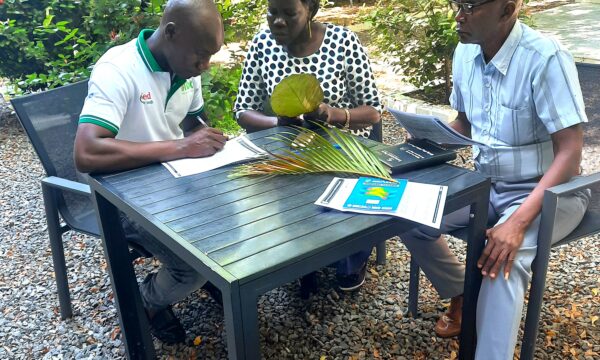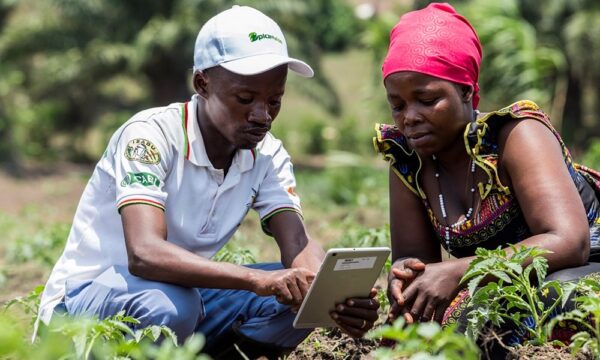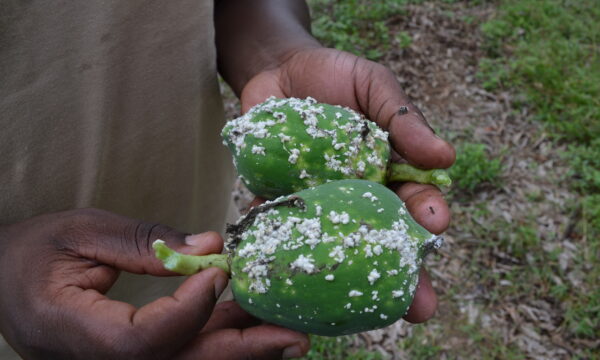
Plant doctor, Agnes Kariuki, helping a female farmer diagnose her crops in Embu Town clinic, Kenya ©CABI (photo credit Holly Wright)
As part of our Monitoring and Evaluation within Plantwise, we are identifying indicators both to help us improve the way we operate and also increase accountability to our participants, partners, and donors. As a follow-up to our blog post on International Women’s Day, one of the ways we can improve our current work and set the stage for more effective project design in future is by collecting sex-disaggregated data.
As an example, let’s look at our member country Kenya. Clinics have been running all over the country successfully for a number of years, and one of the parameters we collect information about is the sex of both farmers and plant doctors. This kind of data provides us with the opportunity to explore several different aspects about the work we do, including:
- Who is attending the plant clinics, and what are the main problems they are having with their crops?
- Are men and women growing different crops?
- If each sex is growing different kinds of crops (i.e. cash crops versus subsistence crops), can we develop our programs to better address their respective needs?
- When developing extension materials, are we covering key crops grown by both men and women?
- Are female farmers more likely to attend clinics run by female plant doctors?
Based on the information collected on the Knowledge Bank to date, 41% of the plant doctors we have trained are female. Training women to be employed in this role encourages workplace equality, and provides incentive for women to pursue employment in the agriculture sector. Having female plant doctors may also make clinics more accessible to female farmers, particularly in countries with strongly divided gender roles.
In breaking down the statistics of attendance at plant clinics, 34% of farmers are female, 54% are men, and 12% had no sex recorded. Planning for future clinics can take these statistics into account, especially in terms of location and timing of the sessions to maximize utility and ease of access for all interested farmers.
Collecting information about the different social groups which are benefiting from Plantwise allows us to ensure that the programme benefits all users equally. With some of these questions in mind, we can continue to improve the lives of people in all of our member countries. For more information about CABI’s Gender Strategy, please visit this link: http://www.cabi.org/Uploads/CABI/about-us/4.8.5-other-business-policies-and-strategies/CABI-gender-strategy.pdf
Thank you to Cambria Finegold for providing guidance and editing for this post.
Related News & Blogs
Parasitic wasps play pivotal role in Kenya’s papaya mealybug control
Papaya mealybug (Paracoccus marginatus) is a devastating papaya pest. It impacts many countries in East and West Africa. Infestations can result in significant economic losses, posing a threat to the livelihoods of smallholder farmers. On average, the…
15 April 2024




